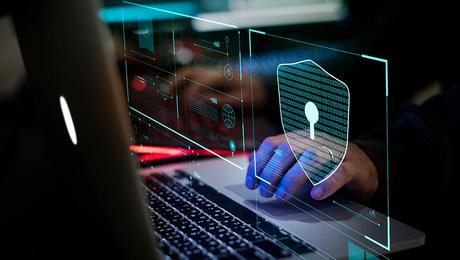Perimeter 81's Second Annual State of Cybersecurity Report, The Decentralized Workplace & The Cyber Complexity Trap, featured our 2022 cybersecurity forecasts. Our initial projections have been augmented with more supporting evidence and other "fun facts."
1. It's more important than ever to keep your flexibility.
I assumed that the worst of Covid was behind us when I started preparing this blog, but the Omicron form now looks to be spreading. Whether we're post-Covid, in between variants-or whatever-it's plainly evident that our present global society permits diseases of all sorts to spread swiftly. A crucial lesson everyone should have learnt by now is that firms must be hybrid.
Not for employee work-life balance (which is wonderful for employees), and not for enhanced employee productivity (which is nice for employers), but for business continuity (which is nice for everyone) (which is nice for everyone). And, of course, for a hybrid workplace to function, you need an IT architecture that enables employees safely access to your networking resources wherever the resources-or people-are located.

Agile companies, particularly those with a Cybersecurity Experience Platform like Perimeter 81, were able to continue functioning while the Covid Delta and Omicron versions made their way across the world in 2021.
In order to save millions of dollars in rent, Perimeter 81 customer Signpost took advantage of the second shutdown by closing all of its offices in New York and moving them to Denver. If you stay adaptable in 2022, your employees, customers, and investors will all appreciate you.
2. Green Initiatives Will Explicitly or Implicitly Favor Hybrid Work
During the initial wave of Covid, when millions of people were forced to stay indoors or work from home, the improvement in air quality was unquestionable (although there was some fake news about dolphins in the canals of Venice). Harvard University has established a definite correlation between exposure to particle matter in the air and coronavirus fatality rates, in addition to better-smelling and better-tasting air.
National and municipal governments alike want to develop policies that minimise pollution and help the world achieve the Sustainable Development Goals (SDGs) by the year 2030. Many governments are planning to restrict the sale of traditional gasoline and diesel automobiles by 2030.
Congestion pricing will be coming to New York, Tel Aviv, and many more cities in the near future. While this may be a burden for some or an unwelcome additional expenditure for others, congestion pricing will provide millions of people new incentive to work from home.
3. Ransomware and Cyberattacks Will Continue Unabated
2021 was a huge year for ransomware and cyberattacks, potentially even the "Golden Age of Ransomware and Cybercrime," as it included successful attacks against the Colonial Pipeline, Volkswagen, Kaseya, T-Mobile, LinkedIn, and more. Perimeter 81's market research showed that a staggering 65 percent of firms had a catastrophic cybersecurity event in 2020-21, including 33 percent from ransomware.
The multi-billion-dollar earnings linked with cybercrime will assure that it persists. Governments and the commercial sector must work together if they are to make any headway against cybercrime.
Real success will only come through a continuous combination of cyber, legal, and police activities that will result in the arrest and incarceration of hackers and the confiscation of their assets. In the case of the Colonial Pipeline attacks, the REvil ransomware gang's operations were disrupted by numerous countries working together.
Changes to Cyber Insurance are on the Horizon
To limit the commercial consequences of a cyberattack, 67 percent of organisations said that they had already acquired cyber insurance while another 30 percent are contemplating it.
Paying the ransom has proven to be the most expedient and cost-effective method thus far. It cost the city of Baltimore about $18 million in cleaning expenses and lost revenue-or 180 times more-in May 2019 because it failed to pay a ransom of 13 Bitcoins (worth about $100,000 at the time).
But as the ransoms have proliferated, cyber insurance prices have soared by 50-100 percent and insurance firms are attempting to limit their coverage or curb ransom payments. Another unique strategy is for insurance firms to exclude "cyberwar" from their cyber insurance coverage.
The outcome of Mondelez's $100 million lawsuit against Zurich Insurance Company for non-payment of losses they received in the NotPetya hack is expected to determine the exact definition of the word and its implications on cyber insurance policies.
The practise of paying ransoms may conceivably come to an end. At the request of French law enforcement and cybersecurity officials, AXA, one of Europe's largest insurers, stated that it would no longer cover ransom payments in its cyber insurance coverage.
We All Stand to Gain from the New Cybersecurity Regulations
For the time being, the Executive Order on Cybersecurity issued by the Biden Administration is a positive first step toward a safer Internet. We're all connected now, thanks to the Executive Order, and the federal government now has a strategy for combating cybercrime that's both comprehensive and coordinated.
The Cybersecurity Safety Review Board is scheduled to begin operations in 2022. In addition to speeding up reaction times and reducing the effect of assaults, its near-real-time analysis of attacks will help spread best practises such as Zero Trust.
US banking authorities will need their cooperation to analyse "computer security events" that must be reported by all US institutions no later than three days after they occur. The term "computer security event" refers to anything that compromises the confidentiality, integrity, or availability of computer resources or data.
The new law will also extend to banks' third-party contractors, who are expected to notify banks of any cyber events that place them at risk. With a little luck and a lot of hard effort, 2022 just could be the beginning of the end for the "Golden Age of Ransomware" and the start of a safer Internet.

